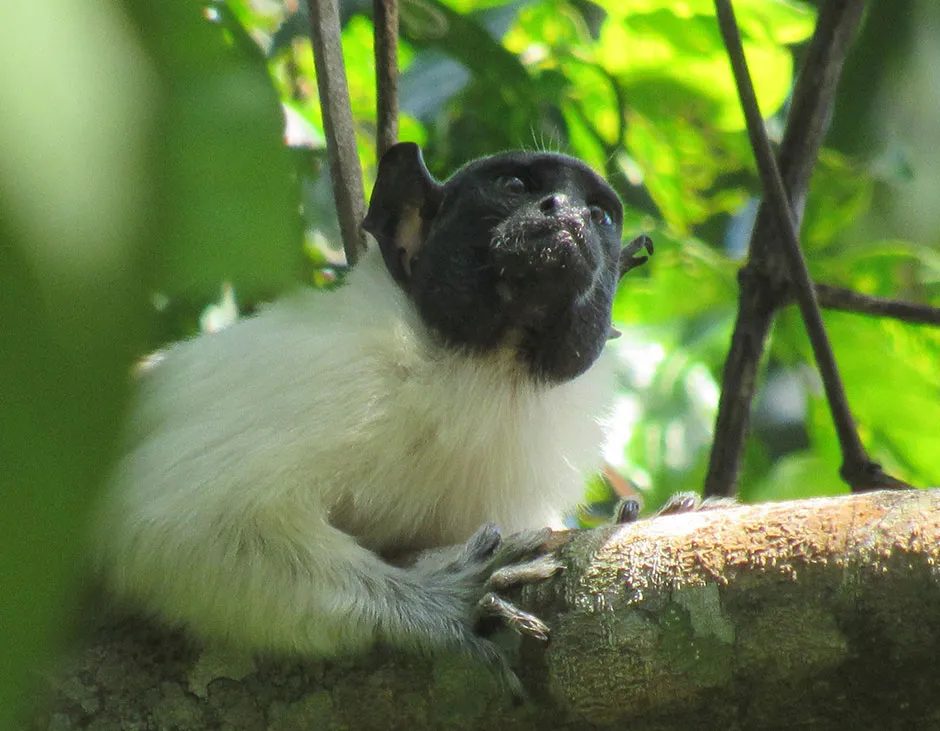One species of monkey copies the accent of another when it enters its territory, possibly to avoid conflict, research has indicated.
Scientists examined the behaviour of 15 groups of two types of tamarin monkeys in the Brazilian Amazon.
Red-handed tamarins adopt the long calls used by pied tamarins when they enter their territory, according to the study.
Red-handed tamarins, which are found throughout the north-eastern Amazon region, have greater vocal flexibility and use calls more often than pied tamarins. Pied tamarins are critically endangered and have one of the smallest ranges of any primate in the world, much of it around the city of Manaus.

Authors of the study believe red-handed tamarins may be copying the pied tamarins’ call to avoid territorial disputes over resources.
“Our study is the first to show asymmetric call convergence in primates, with one species’ call becoming the ‘lingua franca’ in shared territories," said co-author Dr Jacob Dunn, associate professor in Evolutionary Biology at Anglia Ruskin University.
“Because these tamarin species rely on similar resources, changing their ‘accents’ in this way is likely to help these tiny primates identify one another more easily in dense forest and potentially avoid conflict.”
Read more about primate communication:
- Key language ability 'existed in ancient primate ancestors'
- Human speech has 'ancient roots within primate communication'
- Secrets of orangutan ‘language’ uncovered
Lead author Tainara Sobroza, of Brazilian research institution the Instituto Nacional de Pesquisas da Amazonia, said: “When groups of tamarins are moving quickly around mature Amazonian forest it can sometimes be difficult to tell the species apart, but during our research we were surprised to discover they also sound the same in the areas of the forest they cohabit.
“We found that only the red-handed tamarins change their calls to those of the pied tamarins, and this only happens in places where they occur together.
“Why their calls converge in this way is not certain, but it is possibly to help with identification when defending territory or competing over resources.”
The research is published in the journal Behavioral Ecology and Sociobiology.
Reader Q&A: Could an ape play rock, paper, scissors?
Asked by: Pad Scanlon, London
In 2017, researchers in Japan and China revealed that they’d taught five chimps the rudiments of rock,paper,scissors by showing them pairs of gestures on a touchscreen, and then giving them food treats when they picked the winning one. The chimps first learned that paper beats rock, then that rock beats scissors and finally that scissors beats paper.
Later, when the chimps were shown paired pictures randomly, they picked the winning sign 9 times out of 10, putting them on a par with a four-year-old child. The chimps weren’t making the gestures themselves, though, so we don’t know if they’d have the dexterity to actually play it.
Read more: